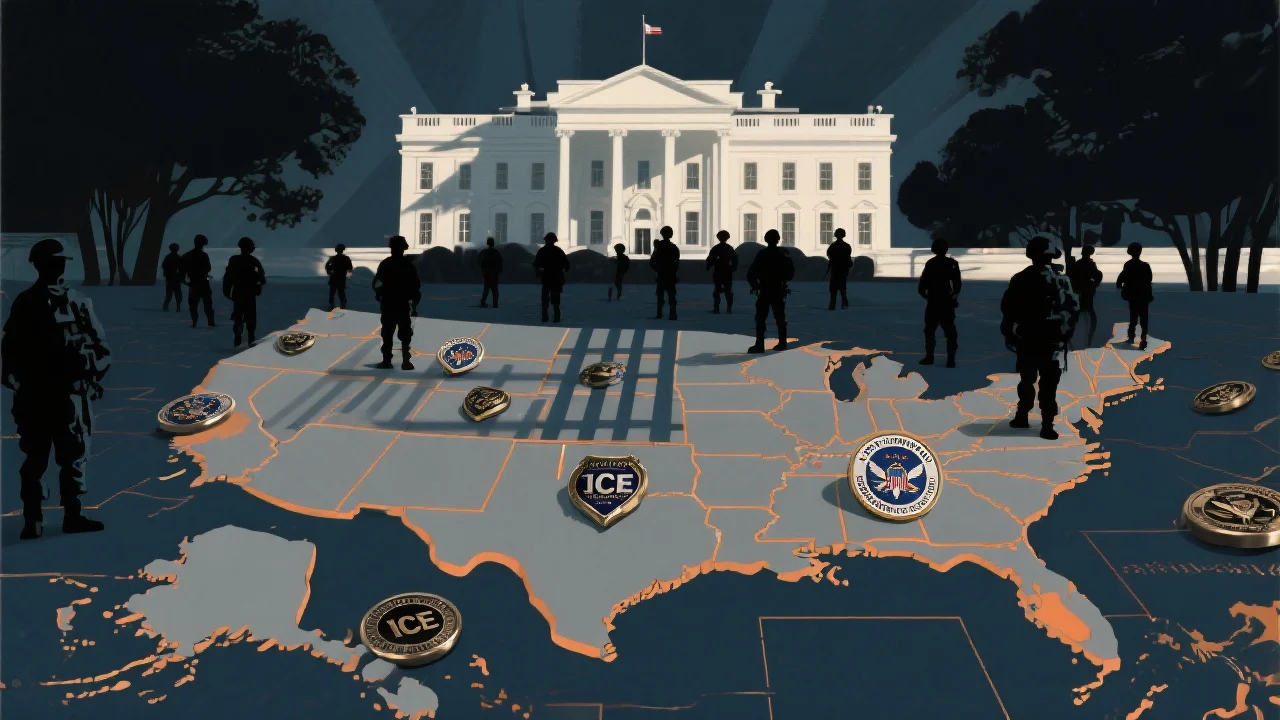
Retribution Writ Large: The Christie Escalation
Trump’s threats to reignite Bridgegate against Chris Christie did not land in a vacuum. They arrive against the backdrop of an unprecedented show of force nationwide.
Trump is not only wielding the Justice Department to hassle critics but also marshaling troops and building out what some governors are calling his “private army.”
After Christie questioned Trump’s use of the Justice Department, the president suggested reopening the 2013 scandal that once derailed Christie’s career, calling him “Sloppy Chris” and hinting that the Justice Department should move forward.
Troops on America’s Streets
That threat dovetails with Trump’s decision to deploy up to 1,700 National Guard troops across 19 states. The operation, framed as a crime and immigration crackdown, places Guard units in direct support of Immigration and Customs Enforcement — performing duties from data collection to “direct interaction with individuals in ICE custody” as per The Independent.
Washington, D.C. has already experienced what residents and civil liberties groups describe as an almost martial-law environment, with Guard patrols on the steps of the Lincoln Memorial and federalized police forces pushing aside local autonomy. Trump has openly promised Chicago and New York are “next” for similar interventions.
ICE as a “Private Army”
California Governor Gavin Newsom warned that Immigration and Customs Enforcement has been transformed under Trump into “a private army” loyal not to the Constitution but to Trump himself. He described “masked men” pulling people from neighborhoods like Los Angeles’s Little Tokyo as signs of what is coming on a national scale.
ICE has not only expanded in size — with Trump signing legislation to boost its budget by $175 billion and add thousands of agents — but has become a political stage for Trump’s broader authoritarian theater. Officials and observers note the resemblance to paramilitary units: opaque, heavily funded, and operating at the president’s discretion.
The Dictatorship Question
Trump, for his part, has leaned into rhetoric that suggests his moves are not simply security responses but ideological ones. In both rallies and interviews, he has brushed off concerns that federalizing police forces or deploying military troops domestically amounts to authoritarianism, quipping that “many people are saying they want a strong leader, even if the word is dictatorship.” That line, far from distancing himself from autocrat comparisons, seems designed to provoke — and to normalize the idea that unfettered executive control is desirable.
Christie’s warning on ABC that Trump is reshaping law enforcement into his “personal legal representation” now looks prescient. The Christie flap is just the latest chapter in a larger playbook: punish adversaries, intimidate critics, and hardwire the instruments of state power to protect his political standing.
The Bigger Picture
When viewed together, Trump’s threats against Christie, his public embrace of ICE as an extension of his authority, and his near gleeful willingness to deploy troops domestically read less like isolated incidents and more like a philosophy of governance. The line between political theater and authoritarian practice is growing thinner.
Christie’s feud is not just about an old traffic scandal; it marks the collision of one Republican’s refusal to bend with a president determined to show he can break anyone — with both the gavel of prosecutions and the boots of soldiers in American streets.
